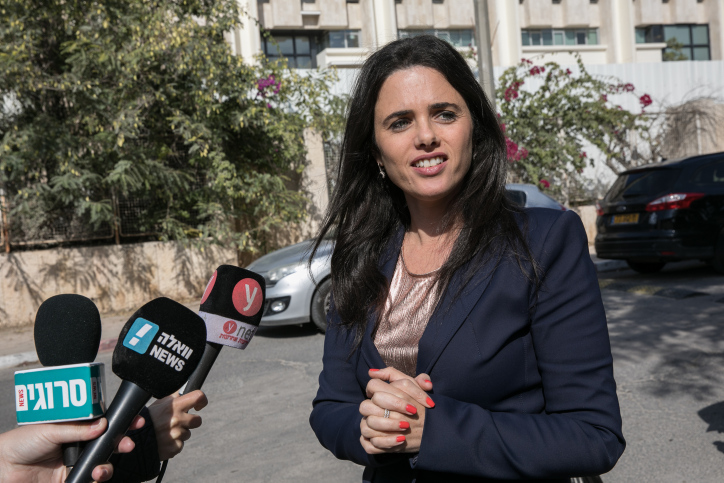Ayelet Shaked’s softer stance toward Israel Beiteinu leader Avigdor Liberman is seen as a big shift from her position in the past.
By World Israel News Staff
New Right leader MK Ayelet Shaked says that she believes that Israel Beiteinu, which has waged a campaign against religious coercion, and religious parties can find a way to reconcile their differences.
“I think that in the next few days, a way will be found for progress between Liberman and the Haredim,” she said, in an interview with the Arutz 7 news website, referring to Israel Beiteinu leader MK Avigdor Liberman and the Haredi ultra-Orthodox parties.
“As I see it, the differences between them can be bridged. It is just a matter of choice, and of goodwill between the two sides,” said Shaked, a former justice minister.
“There is no reason at this time to attack Liberman; instead he should be seen as a partner. From the beginning, I believed that it’s the right way and I made great efforts in this regard,” said the New Right leader, as quoted by Arutz 7.
Shaked also said that she has a ready-made plan to form a right-wing coalition that can be implemented right away.
“I prepared a very comprehensive plan and passed it on to the relevant parties,” she said, while cautioning that if it were to “be discussed in the media, it would end up going nowhere. So at this point, I’m keeping it under wraps,” Shaked added.
Her softer stance toward Liberman is seen as a big shift from her previous position when she charged, in October for example, that Liberman needs to get his act together and ” act maturely.”
Speaking then on Kol Barama Radio, Shaked charged that “if Liberman doesn’t return to the Right and join us, the other option is a government with [center-left] Blue and White.”
Liberman has insisted since the September elections that there could only be a “unity” parliamentary coalition of Prime Minister Benjamin Netanyahu’s Likud party, the Blue and White faction led by MK Benny Gantz, and his own party, with the Haredim kept out of the government. Liberman has also vowed to pass a string of laws that would upend the religious status quo in Israel.
He has traditionally been viewed as a member of the right-wing political bloc on issues relating to the Palestinian-Israeli conflict and publicly promoted a tough stand against Palestinian rocket fire, for example.
However, after the April Knesset election, he refused to join a right-wing government led by Netanyahu, protesting that “messianics” and Haredi “coercers” would rule the governing coalition.


